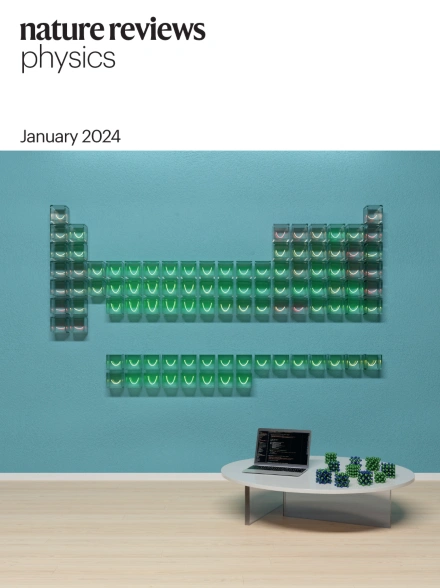Quantum computing for nonlinear differential equations and turbulence
IF 39.5
1区 物理与天体物理
Q1 PHYSICS, APPLIED
引用次数: 0
Abstract
Many problems in classical physics and engineering, such as turbulence, are governed by nonlinear differential equations, which typically require high-performance computing to be solved. Over the past decade, however, the growth of classical computing power has slowed because the miniaturization of chips is approaching the atomic scale. This development calls for a new computing paradigm: quantum computing is a prime candidate. In this Perspective, we offer a view on the challenges that need to be overcome in order to use quantum computing to simulate nonlinear dynamics. We discuss progress in the development of both quantum algorithms for nonlinear equations and quantum hardware. We propose synergies between quantum algorithms for nonlinear equations and quantum hardware concepts that could bear fruit in the near to mid-term future for the simulation of nonlinear systems and turbulence. Quantum computing outperforms classical computing on a number of tasks. This Perspective offers a view on the future potential of quantum computing to enhance simulations of nonlinear systems such as turbulent flows.

非线性微分方程和湍流的量子计算
经典物理和工程中的许多问题,如湍流,都是由非线性微分方程控制的,通常需要高性能计算来解决。然而,在过去的十年里,经典计算能力的增长已经放缓,因为芯片的小型化正在接近原子尺度。这种发展需要一种新的计算范式:量子计算是一个主要的候选者。从这个角度来看,我们提出了使用量子计算模拟非线性动力学需要克服的挑战的观点。我们讨论了非线性方程的量子算法和量子硬件的发展进展。我们提出非线性方程的量子算法和量子硬件概念之间的协同作用,可以在近期到中期的非线性系统和湍流的模拟中取得成果。量子计算在许多任务上优于经典计算。这个观点提供了一个关于量子计算的未来潜力的观点,以增强非线性系统的模拟,如湍流。
本文章由计算机程序翻译,如有差异,请以英文原文为准。
求助全文
约1分钟内获得全文
求助全文
来源期刊

Nature Reviews Physics
Multiple-
CiteScore
47.80
自引率
0.50%
发文量
122
期刊介绍:
Nature Reviews Physics is an online-only reviews journal, part of the Nature Reviews portfolio of journals. It publishes high-quality technical reference, review, and commentary articles in all areas of fundamental and applied physics. The journal offers a range of content types, including Reviews, Perspectives, Roadmaps, Technical Reviews, Expert Recommendations, Comments, Editorials, Research Highlights, Features, and News & Views, which cover significant advances in the field and topical issues. Nature Reviews Physics is published monthly from January 2019 and does not have external, academic editors. Instead, all editorial decisions are made by a dedicated team of full-time professional editors.
 求助内容:
求助内容: 应助结果提醒方式:
应助结果提醒方式:


